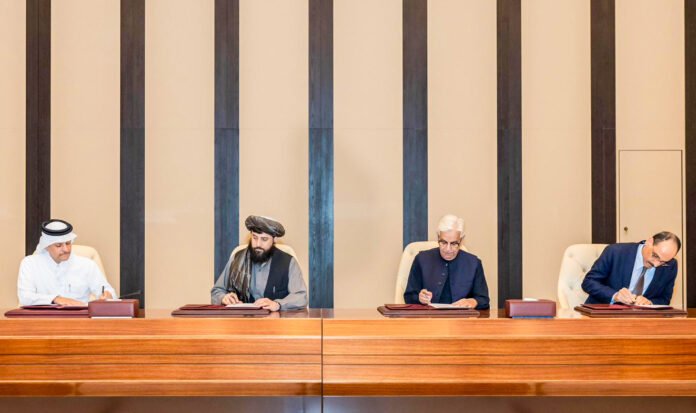Afghanistan and Pakistan have officially agreed to a ceasefire after days of deadly cross‑border gunfire along the Durand Line, the long‑standing frontier that links the two nations. The truce came after a series of talks in Doha, Qatar, where officials from both sides, with help from Turkey, set the terms for stopping the clashes.
During the negotiations, the leaders of Afghanistan and Pakistan pledged an immediate halt to all fighting and agreed to create systems that will keep the ceasefire in place. Qatar’s foreign ministry said the talks also laid out ways to build lasting peace and stability. The next review of the agreement is scheduled for October 25, where the two sides will check that rules are being followed.
This step is part of a longer road toward restoring trust, a road that has been blocked by accusations that each country is sheltering militants from the other. Islamabad accuses the Taliban regime in Kabul of giving relief to Tehreek‑e‑Taliban Pakistan (TTP) and staging cross‑border attacks. Kabul counters that Pakistan repeatedly violates its airspace and borders and has targeted towns inside Afghanistan. Both sides blame earlier governments for past actions, echoing a history of shifting alliances and tensions.
The Durand Line has always been a flashpoint. Afghanistan, a landlocked country, relies on two main crossing points—Spin Boldak near Kandahar that links to Chaman in Balochistan, and Torkham between Jalalabad and Peshawar. These crossings carry trade, aid, and people, especially after the Taliban seized Kabul. When fighting flared up earlier this month, civilians were killed, wounded, and displaced, and traders stopped moving goods. The border closures disrupt the flow of goods that come through the Gwadar port in Pakistan.
Ever since the Taliban took over in 2021, the frontier has seen sporadic skirmishes. In April 2022, the first major clash after the takeover broke out. A week‑long fighting in September 2023 at Chitral further strained relations. Last year, Pakistani forces conducted airstrikes inside Afghan territory; the Taliban said they inflicted heavy losses on Pakistani troops, while Islamabad claimed it successfully countered attacks.
For Afghan refugees who used to cross into Pakistan for safety, the limbo at the gates is now gradual. Traders expect to resume normal business once the fighting stops and checkpoints clear. The Doha agreement offers a chance for both sides to reduce violence and get back to everyday life.
In short, Afghanistan and Pakistan have taken the first concrete step toward stabilising their border and preventing further bloodshed. Whether the ceasefire can hold will depend on the next review meeting and the willingness of both governments to enforce the rules they set today.
Source: ianslive
Stay informed on all the latest news, real-time breaking news updates, and follow all the important headlines in world News on Latest NewsX. Follow us on social media Facebook, Twitter(X), Gettr and subscribe our Youtube Channel.



